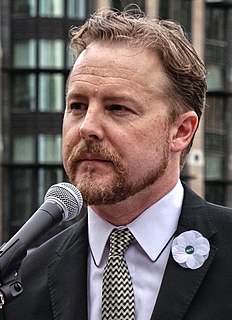A Quote by Samuel West
[P]erfect freedom consists in obeying the dictates of right reason, and submitting to natural law. When a man goes beyond or contrary to the law of nature and reason, he . . . introduces confusion and disorder into society . . . [thus] where licentiousness begins, liberty ends.
Related Quotes
If men, through fear, fraud, or mistake, should in terms renounce or give up any natural right, the eternal law of reason and the grand end of society would absolutely vacate such renunciation. The right to freedom being the gift of Almighty God, it is not in the power of man to alienate this gift and voluntarily become a slave.
Only a law-order which holds to the primacy of God's law can bring forth true freedom, freedom for justice, truth, and godly life. Freedom as an absolute is simply an assertion of man's "right" to be his own god; this means a radical denial of God's law-order. "Freedom" thus is another name for the claim by man to divinity and autonomy. It means that man becomes his own absolute.
The Gospel is temporary, but the law is eternal and is restored precisely through the Gospel. Freedom from the law consists, then, not in the fact that the Christian has nothing more to do with the law, but lies in the fact that the law demands nothing more from the Christian as a condition of salvation. The law can no longer judge and condemn him. Instead he delights in the law of God according to the inner man and yearns for it day and night.
Among the natural rights of the colonists are these: first, a right to life; second, to liberty; third, to property; together with the right to support and defend them in the best manner they can. These are evident branches of ... the duty of self-preservation, commonly called the first law of nature. All men have a right to remain in a state of nature as long as they please; and in case of intolerable oppression, civil or religious, to leave the society they belong to, and ernter into another.... Now what liberty can there be where property is taken away without consent?

































